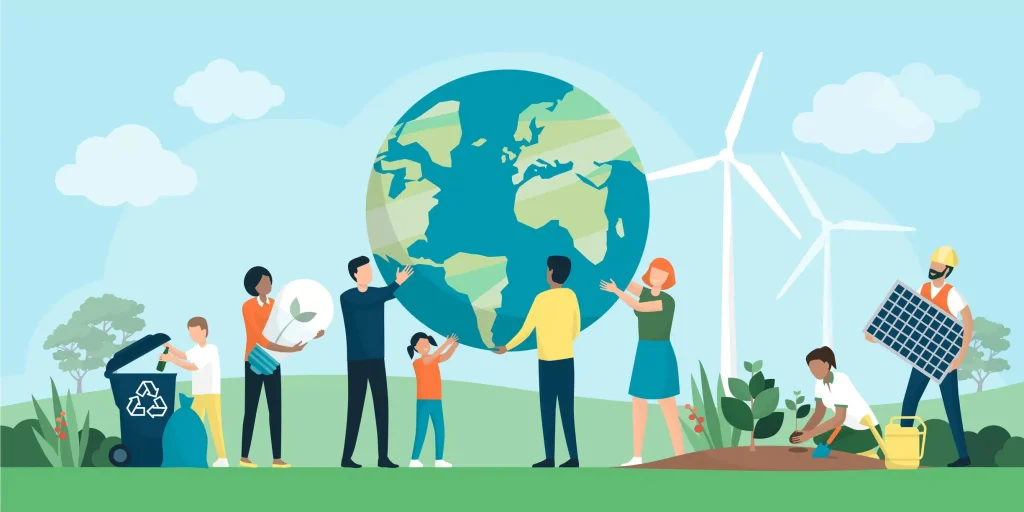Our environment, especially in urban areas, is facing increasing threats from human activities. Rapid urbanization, industrial expansion, and deforestation are having a profound impact on nature, leading to severe consequences for all living beings. While humans have made remarkable advancements, these achievements often come at the expense of nature. In this blog, we’ll explore how human impact affects the environment and emphasize the urgent need to adopt more sustainable practices.
1. The Role of Deforestation in Environmental Degradation
One of the primary drivers of environmental destruction is deforestation. Forests, which serve as the lungs of our planet, are being cut down at an alarming rate to make way for cities, agriculture, and infrastructure. Deforestation disrupts countless species’ natural habitats and contributes to climate change by increasing carbon emissions. Every tree we cut down removes a piece of the Earth’s natural balance.
2. Urbanization at the Expense of Nature
In many cities, land that was once filled with lakes, rivers, and green spaces is now covered with concrete. Human encroachment has led to the destruction of water bodies as we build homes and commercial spaces on what used to be natural reservoirs. Such actions have long-term consequences, including reduced water availability, increased flooding, and the depletion of groundwater sources. If we continue down this path, we risk a future where access to clean water is severely limited.
3. The Decline in Water Quality
While many of us have access to clean drinking water, its quality has diminished over the years due to pollution and industrial waste. Natural water sources that once provided mineral-rich, healthy water are now contaminated. Although we still drink filtered or treated water, it lacks the natural benefits that pure, unpolluted water once offered. To ensure the health of future generations, we must take steps to protect our natural water sources.
4. Human Impact on Air Quality
Urban expansion and industrialization have also severely affected air quality. Trees, which play a vital role in purifying the air, are being removed, leading to increased pollution. The air we breathe is essential to our health, but without sufficient greenery to filter out toxins, we risk respiratory illnesses and other health issues. Preserving forests and green spaces in urban areas is essential for maintaining healthy air for all living beings.
5. The Moral Responsibility to Protect Nature
Nature is not only a resource for humans but a shared home for all living beings. Our actions, often driven by short-term desires, have far-reaching consequences on the ecosystem. God—or nature itself, for those who prefer secular views—has provided us with everything we need to thrive. It is our responsibility to honor and protect these resources. By embracing sustainable practices, reducing waste, and preserving green spaces, we can make a significant impact in reversing environmental degradation.
6. Moving Towards a Sustainable Future
The good news is that it’s not too late to make changes. Governments, organizations, and individuals can all contribute to a more sustainable future. Actions such as reforestation, reducing pollution, and protecting water bodies are steps in the right direction. If we all work together, we can create a world where nature and human society can coexist harmoniously.
Conclusion
Our environment is our legacy, and we must act now to preserve it for future generations. Deforestation, urbanization, and pollution are just some of the ways we are harming nature, but by understanding these issues and taking responsibility, we can change our course. Protecting the environment is not just an option; it is a necessity for the survival of all living beings on this planet. Let us work together to restore balance and ensure a healthier, more sustainable world.

